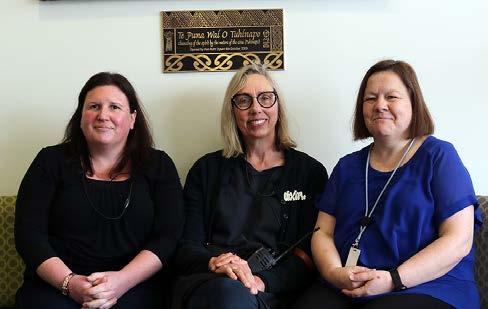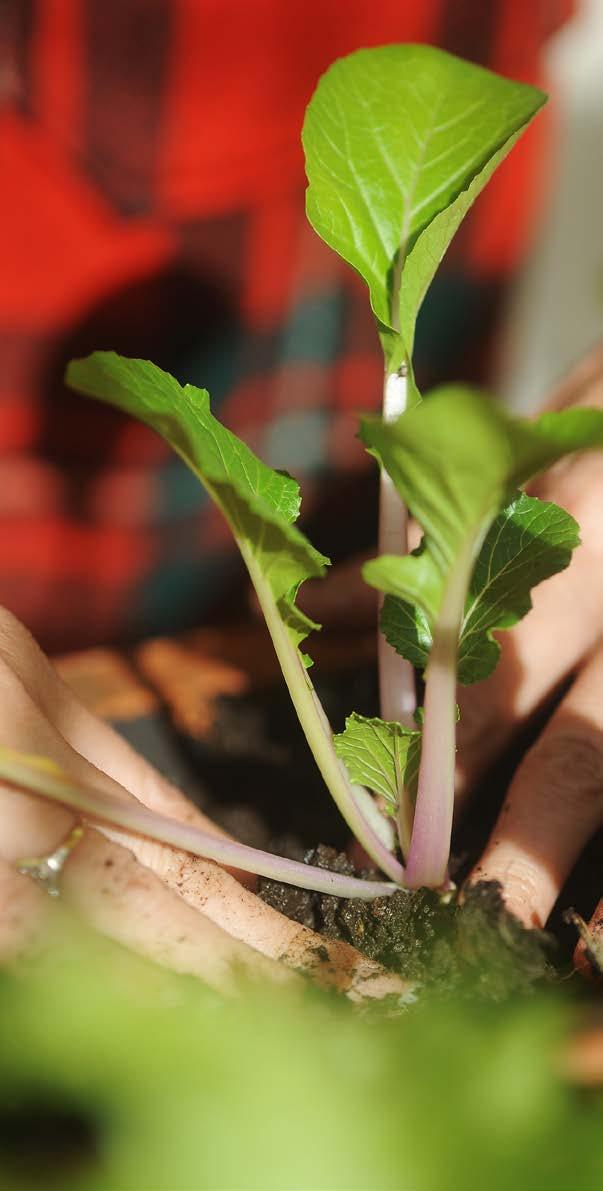
6 minute read
Facts and figures
FACTS AND
FIGURES
77,766
BETTER HELP FOR SMOKERS TO QUIT
29,390 smokers received smoking cessation advice and support from their general practice team in the 2019/20 year; that’s aproximately 70% of all smokers in Pegasus PHO. Overall, coverage was lower than previous years due to the residual impact of external factors from 2019 (measles / terror attacks) and the very significant impact of COVID-19 from early 2020 which saw coverage drop to 70% by end of Quarter 4, 2019/20.
The Stop Smoking Support team, based at Pegasus, contacted 8,500 patients on behalf of their general practice team to offer brief advice and cessation support. Of those contacted, 846 accepted a referral to a cessation support service.
MORE HEART AND DIABETES CHECKS
77,766 people have been assessed for cardiovascular risk, as at 30 June 2020. This means 55% of eligible population having had a risk assessment by their general practice team. During COVID-19 lockdown and the unpredictable six months for general practice this has fallen by 11% from last year’s figures.
CERVICAL SCREENING
66.7% of women aged 25 to 69 have received a cervical smear in the last three years, as at 30 June 2020. This shows a small reduction of 1.2%.
Facts and Figures Continued
83%
95
B4 SCHOOL CHECKS
A total of 4,641 Pegasus enrolled children had a B4 School Check in the 2019/20 year which equates to 83% coverage, and 216 of these checks were completed in the child’s own home by the Pegasus B4SC Mobile Outreach team. Overall, 83% of Māori children and 84% of Pasifika received their B4 School Check.
A total of 317 dental referrals; 401 vision referrals; and 284 hearing referrals were made as an outcome of the checks. There were 314 children referred to a health professional due to concerns about growth/weight, while 174 declined a referral.
INCREASED IMMUNISATION
By the end of the 2019/20 year, Pegasus general practices had vaccinated 91% of Māori children, 96% of Pasifika children, and 95% of children across all ethnicities at the eight months of age milestone.
At the two-year-old milestone, Pegasus general practices vaccinated 92% of all Māori, 98% of all Pasifika and 95% of all two-year-olds.
These results are outstanding, taking into account the considerable drop in vaccination rates during the lockdown period earlier this year.
EXTENDED INFORMATION
The Pegasus response to COVID-19 (Continued)
Health care provided in window of opportunity (Continued)
Supporting change and systems improvement (Continued)
Pegasus Health (Charitable) Ltd Financial Statements (Continued)
PHAB (Continued)
CQAB (Continued)
Canterbury Clinical Network (Continued)
Homecare Medical (Continued)
The Pegasus response to COVID-19 Continued
Surveillance Testing
On April 17 the first COVID-19 surveillance testing was conducted at Moorhouse Pak’nSave where more than 400 people were tested. The directive from the Ministry of Health to set up this ‘pop-up Community Based Assessment Centre’ was given on the previous day and many staff were involved in a short and intense burst of activity to get this CBAC operational for Friday morning.
A CBAC was set up in the east of Christchurch at Ngā Hau e Whā Marae where Pegasus worked in partnership with He Waka Tapu, Whanau Ora Community Clinic and Te Rūnanga o Ngā Maata Waka.
This CBAC did a fantastic job, reaching out to vulnerable communities to remove barriers to accessing tests, while providing advice to the community about COVID-19 and access to financial and other support services.
Primary Mental Health Service
The Primary Mental Health service had to change its face-toface consultation model and move to phone consultations. During the course of lockdown, the service saw some real benefits of moving to this model with ‘Did Not Attend’ rates dropping and high engagement with the service. With referral rates from general practice initially dropping during the response, the service was also able to dramatically decrease wait times.
Supporting General Practices
Pegasus staff, across a range of teams, supported general practices to overcome the challenges and changes faced in delivering care for their patients. An essential initiative was the provision of technology and guidance to provide virtual consults for patients.
Advocating for general practice with the Ministry of Health through GPNZ was also a key focus throughout the pandemic, helping ensure practices remained sustainable.
When demand at general practices decreased and patients hesitated to seek usual care, the Pegasus communications team organised a media campaign to encourage people to continue to contact their practice in the usual way. This campaign ran in The Press, online and social channels as well as radio advertisements translated into a number of languages.
Regular and routine support services for general practices were also required during this time, often adjusting to new ways of doing things such as organising new claims and payments, technology support, and support for clinicians, including pastoral care.
With the pandemic arriving at the start of the ‘flu season, Pegasus has worked behind the scenes to help ensure there is a supply of ‘flu vaccines so that frontline staff and vulnerable people can be vaccinated.

Health care provided in window of opportunity Continued
One young male arrived wearing $5 glasses.
“These were completely useless as reading glasses, he was virtually blind. We got him an appointment with an optometrist and new prescriptive glasses. This was lifechanging for him and he can now do school work,” says Sarah.
The list of health concerns can be long. Sexually transmitted diseases, vision and hearing problems, substance abuse, declining mental health, skin infections and fungal feet are common.
Preventative care, such as personal hygiene education and immunisation is also provided.
ADMISSIONS AT TE PUNA WAI Ō TUHINAPO
The Youth Justice Residential Facility located just outside Rolleston in Canterbury is operated by the Ministry for Vunerable Children, Oranga Tamariki.
Pegasus Health provides primary health care to its residents. Of young people admitted are Måori / Pasifika
220
Young people enter TPW on average per year
500 - 600
Scheduled appointments are provided by the primary health team per quarter.

Supporting change and systems improvement Continued
There are six key areas of focus that are recognised nationally. Canterbury has a set of locally-selected contributory measures (circling the SLMs on the chart). Of particular significance to Pegasus are four areas:
Improved cervical cancer prevention with increased access to cervical cancer screening Improved physical health for people with mental illness – also known as ‘equally well’ Improved oral health Though not identified as a contributory measure, addressing ‘family harm’ has been identified as an area where primary care can have a significant impact.
“We recognise that general practice and primary care can make a big impact in these areas. In a sense, this is where we believe we can make some of the biggest differences in people’s lives, in particular, to reduce disparities in outcomes,” says Lynley Cook. At the centre of addressing the System Level Measures is our primary care workforce. As part of strengthening this, a locally-designed skills development course on motivational interviewing was started in 2017, called “Motivating Conversations.” This supports health professionals to bring about positive behavioural change through their interactions with patients.
More than 720 GPs, practice nurses, pharmacists and other primary health care professionals have been trained in conducting motivational conversations. Feedback on the course has been positive, particularly with the easy transferability of the skills to their practice. Participants say they are listening more, avoiding jumping to conclusions and checking what the patient wants to achieve.
The groundwork done by Lynley and colleagues, across Pegasus and other health system partners, helps to ensure Pegasus is well placed to collarborate when times get tough. The aim is always to deliver high-quality health services to the community.




